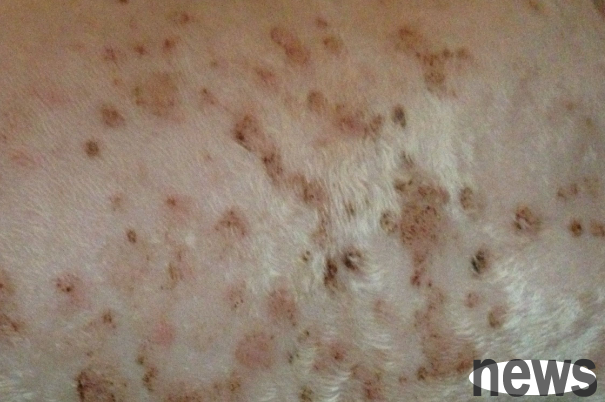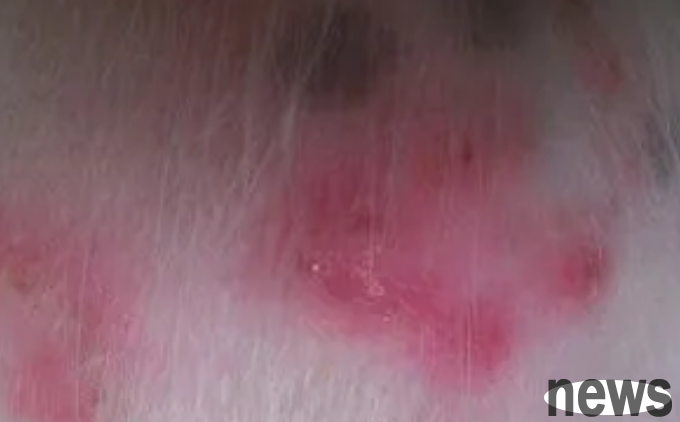What to do if your dog has eczema?
When you find eczema on your dog, contact the veterinary clinic in time for help. A veterinarian will help you determine the type and cause of eczema, which usually involves a complete body examination and consultation of your dog, and may require samples from the eczema area for laboratory testing.

The second step is to treat eczema. The treatment methods are slightly different for different types and causes of eczema. However, for general eczema, routine treatments include skin care, cleaning, anti-inflammatory and dietary adjustments.

Skin care is an important part of any treatment plan, which can help dogs get rid of the symptoms of eczema the fastest. First of all, it is necessary to maintain the environmental sanitation of the dog and avoid pollution and external stimuli as much as possible, such as pollen, dust, etc.
In addition, the dog needs to be cleaned and bathed regularly, which can keep the skin clean and dry. Using special detergents and cleaning the eczema area in your dog can relieve symptoms.
Of course, it is necessary to avoid using too strong medications or sub-quality cleansers, otherwise it will lead to more serious skin problems. Drug therapy Drug therapy is another important aspect, usually done by taking oral or applying ointments.
Drugs include skin disease health supplies, anti-inflammatory drugs and hormone drugs. To prevent bacterial infections caused by excessive scratching, anti-inflammatory drugs or antibacterial drugs are required. However, long-term use of hormone drugs can easily lead to resistance, and in severe cases, it will affect other parts of the dog's body. Therefore, when using it, you should combine the guidance of a veterinarian and pay special attention to the dosage and medication time.




